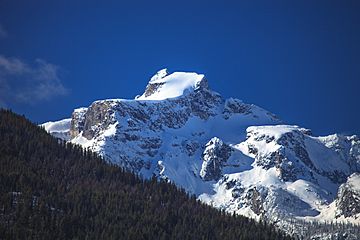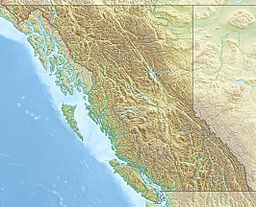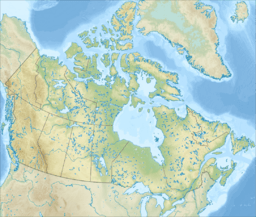Devils Couch facts for kids
Quick facts for kids Devils Couch |
|
|---|---|

Devils Couch, southeast aspect
|
|
| Highest point | |
| Elevation | 2,749 m (9,019 ft) |
| Prominence | 299 m (981 ft) |
| Parent peak | Devils Dome (2769 m) |
| Listing | Mountains of British Columbia |
| Geography | |
| Location | Valhalla Provincial Park British Columbia, Canada |
| Parent range | Valhalla Ranges Selkirk Mountains |
| Topo map | NTS 82F/13 |
Devils Couch is a mountain peak in the Valhalla Ranges. This mountain is part of the larger Selkirk Mountains in southeastern British Columbia, Canada. It stands at about 2,749 meters (9,019 feet) tall. The mountain gets its interesting name because of its shape, which looks a bit like a couch.
About Devils Couch
Devils Couch is located inside Valhalla Provincial Park. This park is known for its beautiful mountains and wild nature. The peak is about 5 kilometers (3 miles) north of Gladsheim Peak. It is also about 12 kilometers (7.5 miles) west of Slocan Lake. The town of Slocan is about 15 kilometers (9 miles) to the northwest.
What's in a Name?
The name "Devils Couch" has an interesting history. When miners first came to this area in the 1890s, they called it "The Toboggan Slide." This was probably because of its shape or how snow might slide down it.
Later, in the 1920s, it was called "King Tuts Couch." This name became popular around the same time that ancient Egyptian tombs were being discovered. The mountain's current name, Devils Couch, was officially chosen on July 22, 1964. This decision was made by the Geographical Names Board of Canada.
Many nearby mountains also have names related to devils or similar themes. These include Black Prince Mountain, Lucifer Peak, Mount Mephistopheles, Devils Dome, Mount Diablo, Satan Peak, and Devils Spire. These names give the area a unique and dramatic feel.
Weather and Nature
Devils Couch is in a region with a subarctic climate. This means it has very cold and snowy winters. Temperatures can drop below -20 °C (-4 °F). With the wind, it can feel even colder, sometimes below -30 °C (-22 °F). Summers are usually mild and pleasant.
The water from the mountain flows into Gwillim Creek and Evans Creek. These creeks then join the Slocan River. This river is an important part of the local ecosystem.
 | Selma Burke |
 | Pauline Powell Burns |
 | Frederick J. Brown |
 | Robert Blackburn |



